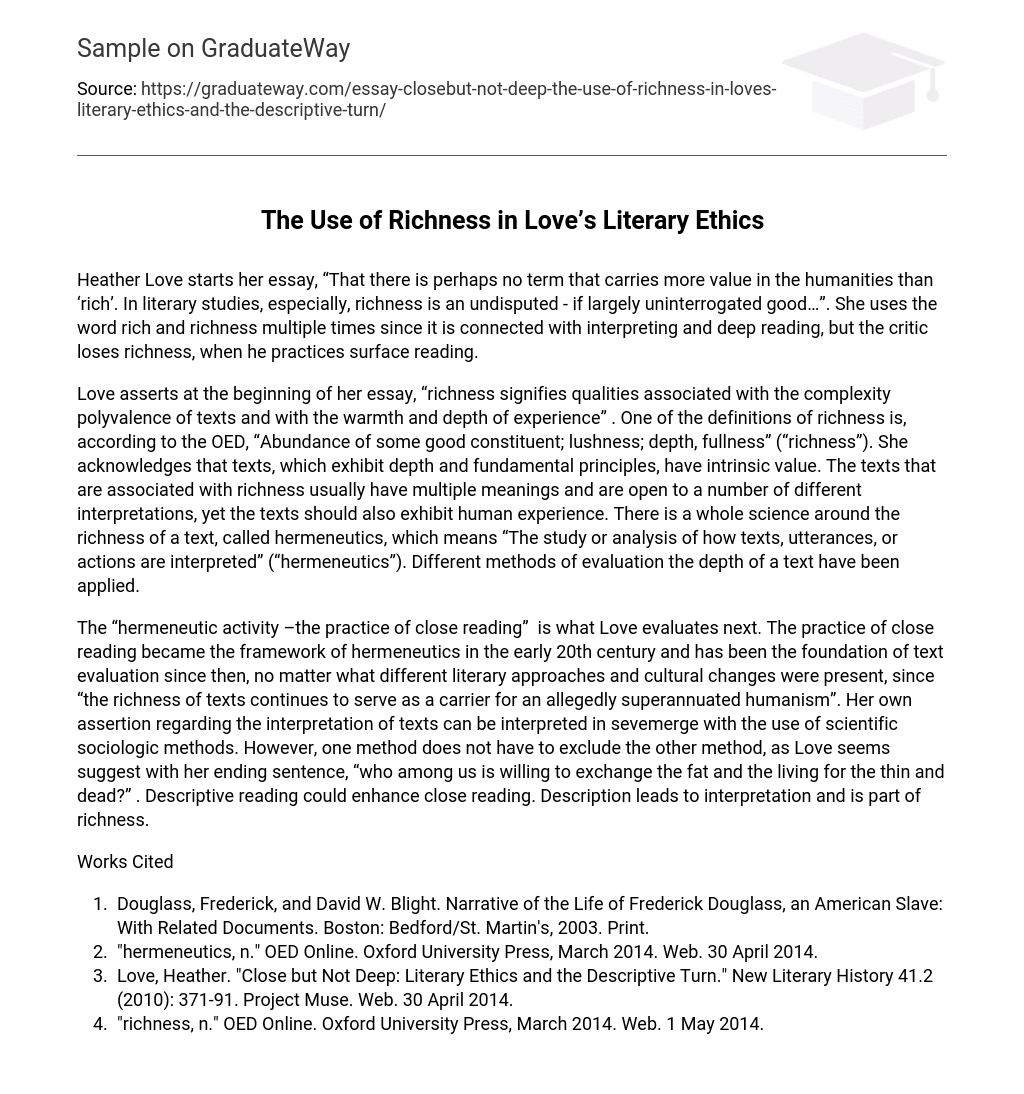Heather Love opens her essay with the statement that in the humanities, no term holds more importance than “rich”. When it comes to literary studies in particular, richness is seen as an unquestionable and highly esteemed attribute. Love uses the terms rich and richness multiple times throughout her essay as they are closely associated with interpretation and profound reading. However, she notes that the critic loses this richness when they engage in superficial reading practices.
In her essay, Love emphasizes that richness signifies qualities linked to the complexity and diversity of texts, as well as the depth and warmth of experience. According to the OED, one definition of richness is an abundance of good constituents, lushness, and fullness. Love acknowledges that texts with depth and fundamental principles hold intrinsic value. These texts associated with richness often possess multiple meanings and invite various interpretations, while also capturing the essence of human experience. The field of hermeneutics, which focuses on how texts, utterances, or actions are interpreted, delves into the science behind textual richness. Various approaches have been employed for assessing the depth of a text.
The next focus of Love’s evaluation is the “hermeneutic activity –the practice of close reading.” Close reading, which became the foundation of hermeneutics in the early 20th century, has remained the basis for evaluating texts despite various literary approaches and cultural changes. Texts continue to hold a wealth of meaning, serving as a carrier for humanism that some may consider outdated. Love suggests that the interpretation of texts can be approached through sociological methods as well. However, this does not mean that one method should exclude the other, as Love implies with her closing statement: “who among us is willing to exchange the fat and the living for the thin and dead?” Descriptive reading can enhance close reading, as description contributes to interpretation and adds to the richness of understanding.
Works Cited
- Douglass, Frederick, and David W. Blight. Narrative of the Life of Frederick Douglass, an American Slave: With Related Documents. Boston: Bedford/St. Martin’s, 2003. Print.
- “hermeneutics, n.” OED Online. Oxford University Press, March 2014. Web. 30 April 2014.
- Love, Heather. “Close but Not Deep: Literary Ethics and the Descriptive Turn.” New Literary History 41.2 (2010): 371-91. Project Muse. Web. 30 April 2014.
- “richness, n.” OED Online. Oxford University Press, March 2014. Web. 1 May 2014.





